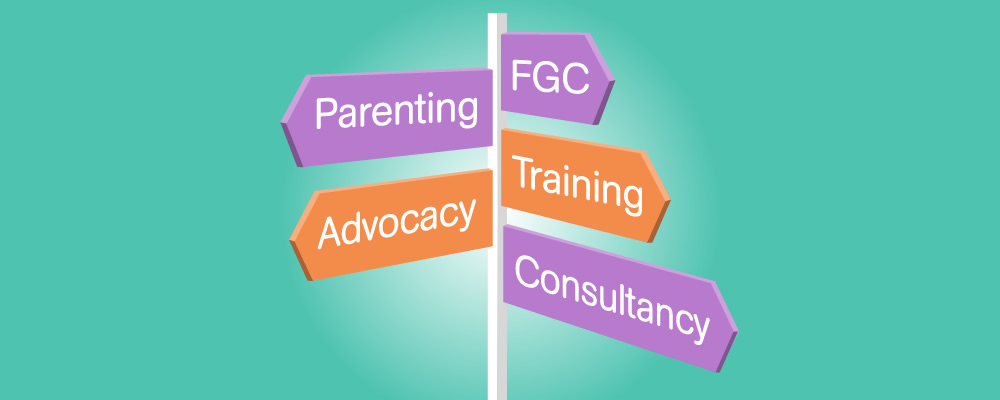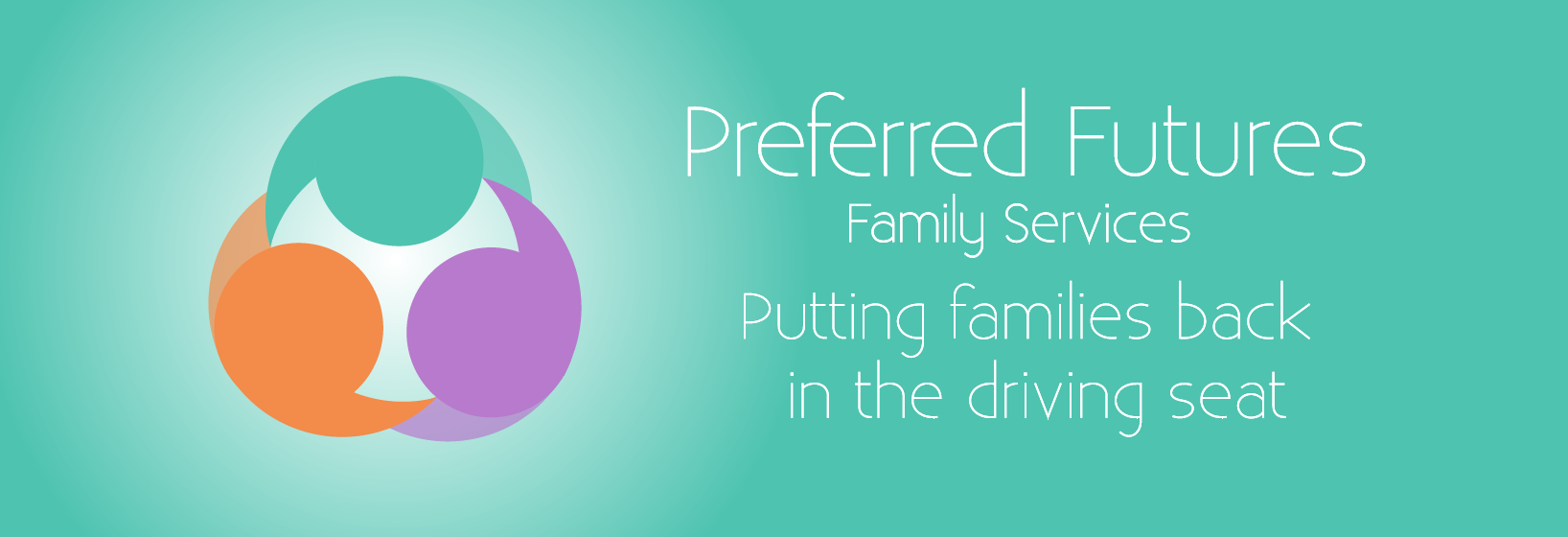Information for professionals

- Care proceedings, safeguarding, contact arrangements, young carers, youth offending, education, domestic abuse. divorce and separation.
- Children and young people are normally involved in their own FGC and contribute to creating the family plan although this is often with support from an advocate.
- A family plan might be required when there are vulnerable adults and you are worried about the care of an elderly relative, domestic abuse, physical or mental disability, or supporting someone through a new diagnosis.
We accept referrals from any source including self-referrals and three things to consider are:
- There is a wider support network who are willing to get involved (i.e. relatives, friends, neighbours, community members and agencies)
- There are important decisions which need putting into a plan.
- The family want the conference and they are ready to make changes.
Once we receive a referral one of our independent FGC Coordinators will have an initial meeting with the referrer to find out what they want to achieve through having an FGC. We will then contact the family and arrange a convenient time to meet to discuss the referral, explain the process and confirm that they wish to go ahead with it.
During the preparation stage we will:
- Visit the family several times (at a time and place which suits them) and work closely with them to make sure they feel well prepared for their meeting. This involves exploring who is important in their life and getting them to think about what possible support they could offer to help find solutions to include in their plan.
- Repeat this process with everyone they wish to invite and anyone who cannot attend but wishes to offer support.
- Take care of all the practical arrangements including booking a venue (of their choice, e.g. community centre, church hall, family centre), support them with any childcare and transport issues and provide refreshments on the day.
- Identify whether anyone (vulnerable adult or child) needs someone to support them at the meeting (e.g. an advocate).
- Confirm if they have any agencies supporting them and whether they would like them involved in their meeting. If so, we will meet them prior to the meeting to enquire what further support they can offer and make sure they are fully aware of their role in the process (e.g. agency members are not decision makers at the FGC, they are information givers) At this stage we will also check whether there is anything which cannot be agreed from their perspective at the FGC.
Advocacy is about supporting someone to get their voice heard and their wishes and feelings are considered and included in their family plan. Preferred Futures recommends that all children are offered advocacy support as part of their FGC and can provide this service or help to identify an appropriate person.
We will:
- Welcome and introduce everyone.
- Invite you to set some ground rules to help keep everyone focused.
- Chair the information sharing stage of your meeting.
- Provide refreshments.
Stage 1 – Information sharing
- The referrer will outline why they made the referral and what they hope will be achieved through the process, inform the meeting what they can do including any resources they can provide to help support the plan, state whether there is anything they cannot agree to (e.g. something which may put family members at risk of harm).
- Other service providers will share information about their involvement with the family including support and resources their agency can provide.
- The family can then respond with any relevant information and questions.
- The advocate will speak on behalf of the person they are supporting or help them to have their say.
- Any further discussion will then take place before moving into private family time.
Stage 2 – Private Family Time
The family will be left alone to explore their options, possible solutions and agree to their plan.
The Coordinator and Advocate will be on call throughout if needed
Stage 3 – Agreeing the Plan
- The family will be invited to share their agreed plan with the referrer and others in attendance.
- Providing the plan is safe everyone will agree to it.
- Service providers will agree timescales for their support.
- The Coordinator will ask them to consider who will monitor the plan and whether they wish to come back for a review.
- A review date will be set.
- The coordinator will type up and distribute the plan to all concerned.
- The family will be informed that they can contact the coordinator at any time if they feel they need to bring the review forward.
Evaluations
Ask everyone for any feedback and for evaluation forms to be completed.
The family can contact the coordinator at any time if they feel they need to change the date of the review.
The coordinator will:
- Ask for input as to how they feel the plan is progressing.
- Invite the family to make any amendments required to tweak the plan.
- Confirm that agreed support and resources that were offered have been provided.
- Ask for any feedback and evaluations to be completed.
- At this stage, if everyone is in agreement, we will close the case and invite the family to remain involved in the development of the service.
Company Information
Preferred Futures Family Services (Yorkshire) CIC
- BBIC Innovation Way Barnsley S751JL
- 01226 249590 / 07480 211680 / 07853 259096
- enquiries@preferredfuturesfs.co.uk
C.I.C
Company Number 09490809

